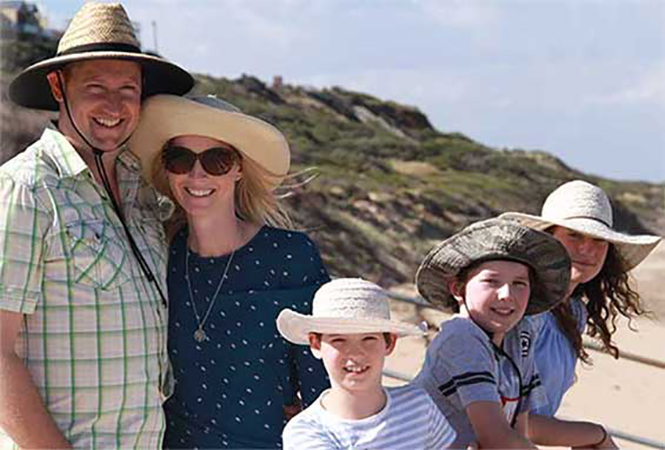
“We’ve told them a fair bit about what happened and that I was quite sick. They do worry about it, but we try to just be honest with them.”– John who had Hodgkin lymphoma twice, when his children were very young.
Telling children about a cancer diagnosis of someone they know and love can be overwhelming. However, research shows that being open and honest is one of the best ways to help them.
Why honesty is the best policy
There are many reasons why it’s important to have this conversation when you feel able:
- Secrecy can make things worse and be difficult to keep.
- You can’t fool kids. They’re observant and no matter how hard you try most children will suspect something is wrong.
- A lack of information or changes in routine can increase their distress and they may make up their own explanation, which can be worse.
- They might find out from someone else.
- It gives children a chance to talk and ask questions.
- They have a right to know and telling them shows you trust and value them.
- Children are resilient and this gives them coping skills when life doesn’t go to plan.
“Tell the truth, don’t sugar-coat, don’t be too over the top. Admit that it’s not going to be a walk in the park, but you’re not going to die tomorrow.” - Izzy (15), father had lung cancer.
How to tackle the conversation
- Take time to process your own feelings before speaking with children.
- Practise your response to potential questions.
- Start with questions to check what the child knows about cancer.
- Be honest and open. Tell them the basics in words they can understand.
- Explain that cancer is not their fault and is not contagious.
- Assure them they will always be looked after, even if you can’t do it yourself.
- Stop and listen to them so you know how they really feel.
- Share your own feelings to show that it’s okay to feel emotions.
“I made sure the kids knew it was okay to be angry or upset, but also that it was okay to laugh if something was funny – two years is a really long time not to laugh.”
- Genevieve, mother of four, speaking to her children about their brother’s leukaemia diagnosis.
Useful points to remember
- When it’s a child close to you, you will know them best and are in the best position to judge their ability to understand.
- Children’s understanding of illness and their reactions vary depending on their age, temperament and family experiences.
- Continue routines as much as you can.
- Remember this is a process, not a single chat.
- Talk about their own activities and let them know it’s still okay to have fun.
- Set aside time to enjoy special moments just with the family.
- Children may react with tears, anger, fear, or not show a reaction. They may also react physically by bedwetting or changing sleeping patterns.
- Teenagers may find it hard to talk to you or show you how they feel.
- If the cancer has advanced, keep talking to them. Children need to be given the opportunity to see their loved one, ask questions, prepare for the loss and say goodbye.
For more information, including age-appropriate advice and language for infants, pre-schoolers, primary school-aged and teenagers, download our free guide Talking to kids about cancer or call 13 11 20.